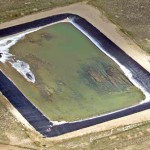
 A report was released today identifying and examining the dangers to water quality posed by oil and gas production in the states of Colorado, Montana, North Dakota and Wyoming.
A report was released today identifying and examining the dangers to water quality posed by oil and gas production in the states of Colorado, Montana, North Dakota and Wyoming.
The report, Watered Down, shows how regulatory systems fail to protect residents and communities from the harmful effects of oil and gas development.
The report’s findings are:
Oil and gas drilling uses massive volumes of water and produces massive volumes of waste.
No federal law sets comprehensive standards for oil and gas production.
State regulation is piecemeal.
A movement toward local ordinances to provide better protections could be useful to address local concerns, but the oil and gas industry generally prefers state oversight. Many states discourage or prevent oil and gas regulation at the local level.
Bob LeResche, a member of the Powder River Basin Resource Council and Western Organization of Resource Councils spokesperson said the report documents blowouts, pipeline breaks, increasing radioactive waste and saltwater contamination of both water and soil in the four states, including the massive oil pipeline spill near Tioga, ND, oil well blowout in southern Wyoming and new hazardous waste landfill in eastern Montana servicing radioactive drilling waste from North Dakota.
“Along with many others in western North Dakota, I drink water from Lake Sakakawea,” said Theodora Bird Bear, a Dakota Resource Council member from Mandaree, ND. “With 13 oil pipelines and over 200 laterals crossing the bottom of the lake, I expect it is a matter of when, not if, there is a major spill.”

“What is needed are strong, clear, comprehensive and enforceable national performance standards for oil and gas drilling, production and delivery—standards that would help us to protect our communities from the kind of damage outlined in this report,” LeResche said. “Critical to the success of such standards are effective monitoring systems, the capacity to enforce the law with fines that will deter carelessness, and outreach programs that encourage the public to report spills and other violations in their often remote communities.”
The report recommends:
Setting clear and enforceable performance standards, such as wellsite construction, waste stream testing and waste disposal.
Providing and funding comprehensive monitoring and testing systems, including pipelines.
States should not permit more wells than they can properly oversee. State legislatures should provide regulatory agencies with the personnel and authority to manage oil and gas development.
Agencies should establish, promote and adequately staff hotlines enabling residents to report problems at oil and gas sites and should respond promptly to calls from residents.
“The extraction processes, transporting methods and disposing of the associated waste are an imperfect process that will eventually result in more cases of contamination and pollution,” said Terry Punt, a rancher from Birney, MT, and a member of Northern Plains Resource Council. “This is why our states must have stricter standards, increased transparency and less self-monitoring.”

With Tuesday’s election results reflecting concerns about energy production—voters in Boulder, Fort Collins and Lafayette, CO, approved measures either banning or putting a moratorium on fracking—the report comes at a time when citizens are worried about how oil and gas extraction methods endanger water, land, air and human health.
Setting national standards is a “tremendous challenge,” LeResche said. “For that reason, we are urging state and local governments to act now to protect their constituents and their natural resources. Levels of oil and gas production are rising in our region—we cannot afford to wait.”
Visit EcoWatch’s WATER and FRACKING pages for more related news on this topic.

[source: http://ecowatch.com/2013/11/07/oil-and-gas-regulations-fail-to-protect-water/]

Leave a Reply
You must be logged in to post a comment.